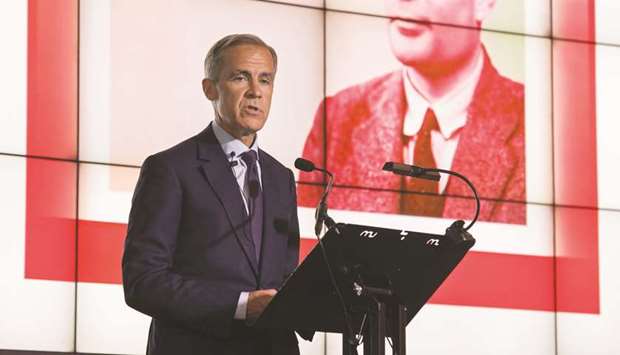Alan Turing, the scientist known for helping crack the Enigma code during World War II and pioneering the modern computer, has been chosen to appear on the new £50 note.
The mathematician was selected from a list of almost 1,000 scientists in a decision that recognised both his role in fending off the threat of German U-boats in the Battle of the Atlantic and the impact of his postwar persecution for homosexuality.
The announcement by the Bank of England governor, Mark Carney, at the Science and Industry Museum in Manchester completes the official rehabilitation of Turing, who played a pivotal role at the Bletchley Park code and cipher centre.
While at Bletchley Park, Turing came up with ways to break German ciphers, including improvements to pre-World War II Polish methods for finding the settings for German Enigma machines.
Carney said yesterday: “Alan Turing was an outstanding mathematician whose work has had an enormous impact on how we live today. As the father of computer science and artificial intelligence, as well as (a) war hero, Alan Turing’s contributions were far ranging and path breaking. Turing is a giant on whose shoulders so many now stand.”
The bank praised Turing for his role as a scientist and for the impact he has had on society. An inquest concluded his death from cyanide poisoning in 1954 was suicide.
The bank acknowledged Turing’s pivotal role in the development of early computers, first at the National Physical Laboratory and later at the University of Manchester.
“He set the foundations for work on artificial intelligence by considering the question of whether machines could think,” the Bank said. “Turing’s legacy continues to have an impact on both science and society today.”
Turing’s face will appear on the new £50 polymer note when it goes into circulation in 2021, following a public consultation process designed to honour an eminent British scientist.
The Bank said it had received a total of 227,299 nominations, covering 989 eligible characters. These were narrowed down to a shortlist of 12, with Carney making the final choice.
The shortlisted characters, or pairs of characters, were Mary Anning, Paul Dirac, Rosalind Franklin, William Herschel and Caroline Herschel, Dorothy Hodgkin, Ada Lovelace and Charles Babbage, Stephen Hawking, James Clerk Maxwell, Srinivasa Ramanujan, Ernest Rutherford, Frederick Sanger, and Alan Turing.

Mark Carney, governor of the Bank of England, speaks in front of the concept design for the new Bank of England u00a350 banknote, featuring mathematician and scientist Alan Turing, during the presentation at the Science and Industry Museum in Manchester, north-west England yesterday.
